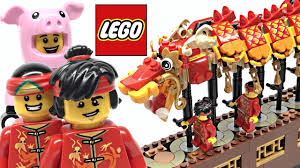来源于《商业》版块
Lego v Barbie in China
乐高和芭比娃娃在中国的竞争
Yellow brick road
黄砖路
Why the toy brickmaker has soared but America’s favourite doll has stumbled
为什么玩具积木越来越受欢迎,而美国最喜欢的娃娃却命运多舛
Budding engineers cluster around a table-sized model of the China Art Museum, a landmark of Shanghai, adding helipads, carrot patches and other improvements with colourful bricks. Prising a child from Lego’s vast shop near People’s Square can be like unsticking two stubborn bits of Lego. Li Yang, visiting for a few days from Shenzhen, has been waiting for her daughter for two hours. Zhu Yunfei, watching his son, marvels at the variety: “Coming here to play with him is making up for my childhood,” he says. They drop by every week.
正在崭露头角的工程师们聚集在上海地标性建筑——中国美术馆的一个桌子大小的模型周围,用五颜六色的积木增加了直升机停机坪、胡萝卜块和其他改进。让一个孩子离开人民广场附近的乐高大型商店,难度好比拆下两块牢固的乐高积木。李阳从深圳来这里玩了几天,她已经等女儿两个小时了。看着儿子的朱云飞惊叹于这种多样性:“来这里和他一起玩弥补了我的童年,”他说。他们每周都会来。

Lego’s rise in China has been vertiginous. In 2017 it overtook Alpha Group, a local giant, to become the country’s leading toy company (not including video games). In the past two years it has opened 89 stores. It wants 50 more by December, which will bring it to 30 cities. Its first Chinese factory started moulding bricks in 2016. The toy industry is growing by 9% annually in the country, but the Danish firm’s Chinese arm notches up “very strong double digits”, says Paul Huang, its boss.
乐高在中国的崛起令人目眩。2017年,它超越了当地巨头阿尔法集团,成为中国领先的玩具公司(不包括电子游戏)。在过去的两年里,乐高已经开了89家店。到12月,还想再开50家,届时30个城市都有店。乐高第一家中国工厂于2016年开始做积木。中国的玩具业正以每年9%的速度增长,但是这家丹麦公司的中国分公司却取得了“非常强劲的两位数增长”,其老板保罗·黄如此表示。
It has done so even as the brickmaker’s global business has looked shakier. In 2017 Lego cut 1,400 jobs and recorded its first drop in revenues and profits in over a decade. But last year both ticked up again, by 4% each. Lego has thus retained its status as the world’s biggest toymaker, snatched from Mattel in 2014—even as its American rival last year earned its highest revenues in five years from its Barbie dolls.
尽管这家积木厂的全球业务看起来更加摇摇欲坠,但在中国的业绩却蒸蒸日上。2017年,乐高裁减了1400个工作岗位,实现了10多年来的首次收入和利润下降。但去年收入和盈利都再度上涨,涨幅均为4%。因此,乐高保住了全球最大玩具制造商的地位。2014年,乐高从美泰手中拿回了乐高的市场份额。即使去年,其美国竞争对手美泰因芭比娃娃达到了五年内的最高收入。
Newly affluent parents in China have helped Lego recover. “We have not maxed out there, by far,” says Niels Christiansen, whom Lego brought in as chief executive two years ago. As in the West, the educational merits of bricks appeal to Chinese parents. Last year 98% of those surveyed by Lego said that play was essential for their child’s well-being, even more than Americans and Danes.
中国新富阶层家长帮助乐高重新辉煌起来。“到目前为止,我们还没有达到极限,”于两年前上任的乐高首席执行官尼尔斯·克里斯琴森表示。和西方一样,积木的教育价值吸引了中国家长。去年,乐高公司的调查显示,98%的中国家长认为玩耍对孩子的健康至关重要,甚至超过了美国人和丹麦人。













